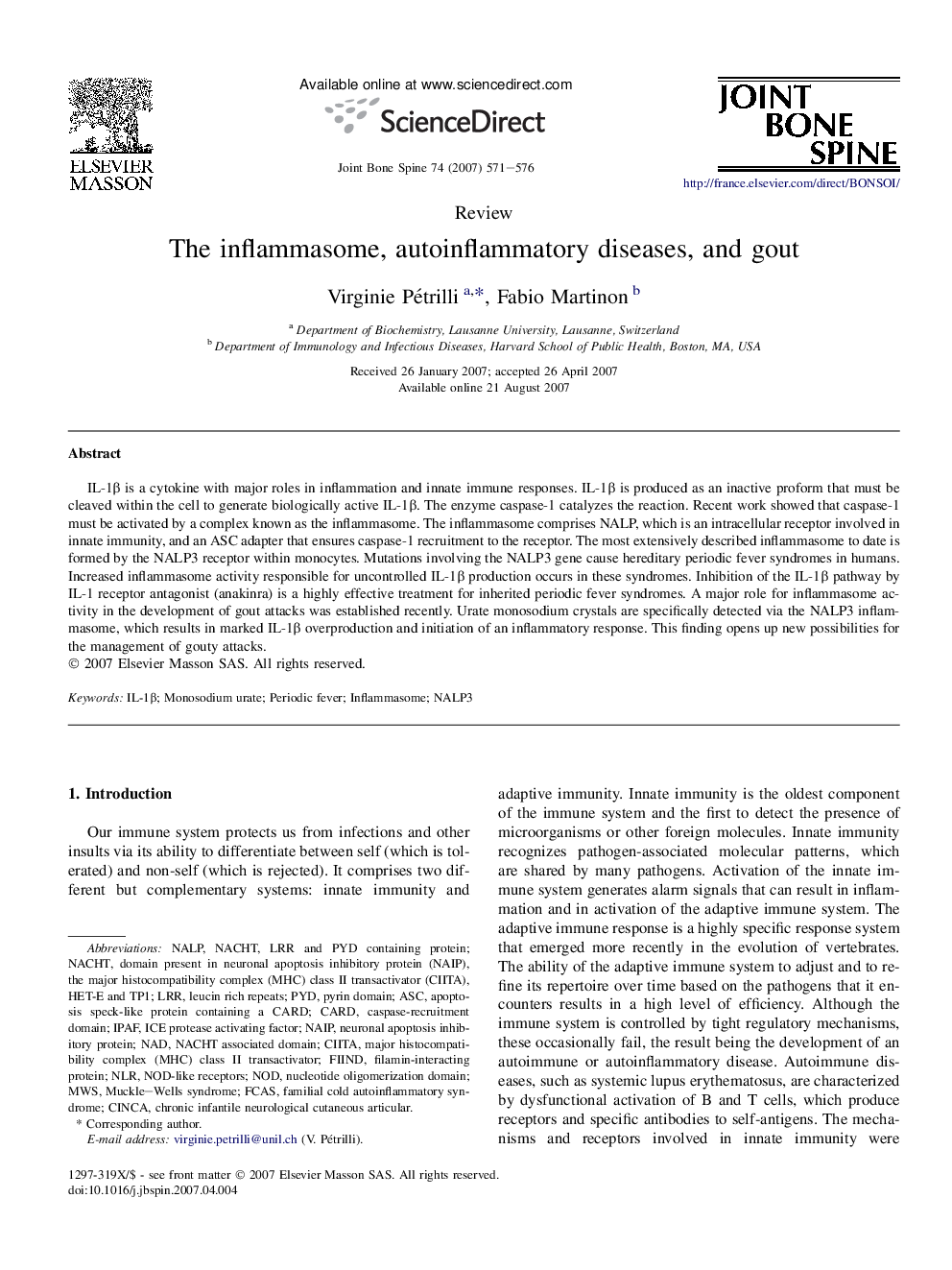| Article ID | Journal | Published Year | Pages | File Type |
|---|---|---|---|---|
| 3367091 | Joint Bone Spine | 2007 | 6 Pages |
IL-1β is a cytokine with major roles in inflammation and innate immune responses. IL-1β is produced as an inactive proform that must be cleaved within the cell to generate biologically active IL-1β. The enzyme caspase-1 catalyzes the reaction. Recent work showed that caspase-1 must be activated by a complex known as the inflammasome. The inflammasome comprises NALP, which is an intracellular receptor involved in innate immunity, and an ASC adapter that ensures caspase-1 recruitment to the receptor. The most extensively described inflammasome to date is formed by the NALP3 receptor within monocytes. Mutations involving the NALP3 gene cause hereditary periodic fever syndromes in humans. Increased inflammasome activity responsible for uncontrolled IL-1β production occurs in these syndromes. Inhibition of the IL-1β pathway by IL-1 receptor antagonist (anakinra) is a highly effective treatment for inherited periodic fever syndromes. A major role for inflammasome activity in the development of gout attacks was established recently. Urate monosodium crystals are specifically detected via the NALP3 inflammasome, which results in marked IL-1β overproduction and initiation of an inflammatory response. This finding opens up new possibilities for the management of gouty attacks.
